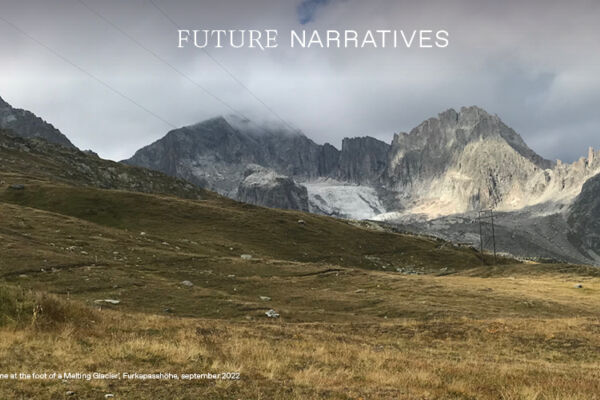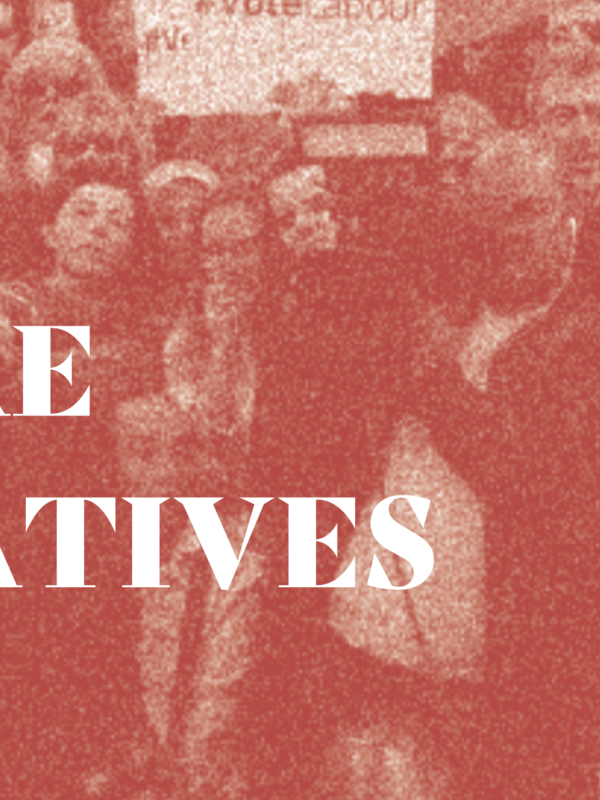Schrijven tegen de tijd. Literatuur en engagement in het tijdperk van de ineenstorting.
- FUTURE NARRATIVES


(NL) Van 27 tot en met 31 januari staat het RITCS een hele week lang in het teken van onderzoek. De focus van deze onderzoeksweek ligt op FUTURE NARRATIVES, verhalen van de toekomst.
LECTURE PERFORMANCE PARLIAMENT AND THE MANY, door DIETER LESAGE.
Een zinnetje waart door de wereld – We are the many. Sommigen vinden allicht dat dit zinnetje iets bijzonder verontrustends heeft, indien al niet schrikwekkends, terwijl anderen het juist heel opgewekt zien. Het hangt er waarschijnlijk van af of je denkt dat je zelf tot die velen behoort of niet.
In elk geval doet het zinnetje tal van vragen en bedenkingen rijzen. Wat betekent het juist? Wat zeggen we precies wanneer we zeggen dat we de velen zijn? Wanneer zeggen we het? Waar komt het zinnetje vandaan? Waar stuurt het op aan? Verzamelt het of verdeelt het?
Indien wij zeggen dat wij de velen zijn wanneer we verzamelen, wie zijn dan de anderen die niet als een deel van onze verzameling gezien worden? En wanneer we zeggen dat we met velen zijn, zeggen we dan hetzelfde als wanneer we zeggen dat we de velen zijn?
Wat te zeggen over de betekenis van een reeks andere zinnetjes die gelijkenissen lijken te vertonen met het zinnetje “we are the many”, zinnetjes zoals “we are the people” of zelfs een zinnetje als “we are the 99%”?
Dit evenement zal in het Engels plaatsvinden.
(ENG) From 27 to 31 January, RITCS School of Arts is devoted to research for a whole week. The focus of this research week is on FUTURE NARRATIVES, stories of the future.
LECTURE PERFORMANCE PARLIAMENT AND THE MANY, by DIETER LESAGE.
A phrase is haunting the globe – We are the many. Some people may find that there is something about this phrase, which is extremely troubling, if not frightening, whereas others may think this phrase is a most joyful one.
It probably depends on whether you think of yourself as belonging to the many or not. In any case, the phrase raises a lot of questions and issues.
What exactly does it mean? What are we saying when we say that we are the many? When do we say it? Where does this phrase come from? What does this phrase aim at? Does it assemble or does it divide? Is it true or do we just pretend that we are the many when we say that we are the many? If we say that we are the many when we assemble, who are the others that are not considered part of our assembly?
And if we say that we are many, do we say the same as when we are saying that we are the many? What about the meaning of a series of other phrases which seem similar to the phrase “we are the many”, phrases such as “we are the people” or even the phrase “we are the 99 %”?
This event will take place in English.
